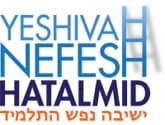In this week’s parsha, Korach argues that “all of Klal Yisroel is Kadosh” and it is incorrect for anyone to claim special work, privileges, or status. Many prominent members of Bnei Yisroel agreed with this logic and joined Korach. Putting aside the personal motivations chazal tell us about Korach and the members of his Eidah, why does Hashem and the Torah seem divide us into groups and divisions with separate obligations and privileges? Aren’t we all created bitzelem elokim?
Far be it from me to try and explain Hashem’s wisdom and decisions in creating the universe. However, when we do look around we see that, while in some way we all reflect Hashem, we all certainly were created with different looks and abilities, both physical and spiritual. It would appear that Hashem, being infinite, is not reflected completely in any one individual, rather each person in their own way has the potential and obligation to reflect Hashem in their own way. The Kisei Hakavod is reflected by the camps of the shevatim, each in their own way representing their own mida, a part of the greater whole.
This gives us a deeper understanding on the emphasis Hashem places on achdus. If one shevet, one person, tries to develop not into what they are meant to be but what others think they should be, then Kisei HAkavod, the general Tzelem Elokim (Kaviyachol) is lacking. We all lose when children are pressured into being something they’re not.
In an ironic twist, who would find more satisfaction in Klal Yisroel and our chinuch syatem today? Korach or Moshe? We find ourselves pushing every child to be the “Techeleis”, the “Mezuzah”, forgetting that every string on the tzitzis is important, the mezuzah is there to protect the people and seforim inside the room. There is a chashivus to that, privileges and obligations, but on its own loses its significance. In a way, today we only have the “white tzitzis” and have lost the Techeleis. In galus, our homes, non-permanent until the arrival of moshiach, lack something in regard to the mitzvah of mezuzah. It would seem that what has really sustained us is the common Jew, struggling to maintain an individual relationship with Hashem in a challenging world.
More than acknowledging individual kochos of our children and students, we need to start being Machshiv them. A 4 cornered begged with tzitzis needs techeiles, but not as much as the Techeiles is reliant on the other strings or begged itself.
May we all develop our personal kochos to their fullest potential and dedicate them to serving Hashem, ans help our children and students accomplish this as well.
Shabbat Shalom, Have a great Shabbos,
-Ari Deutscher MSW

Leave A Comment